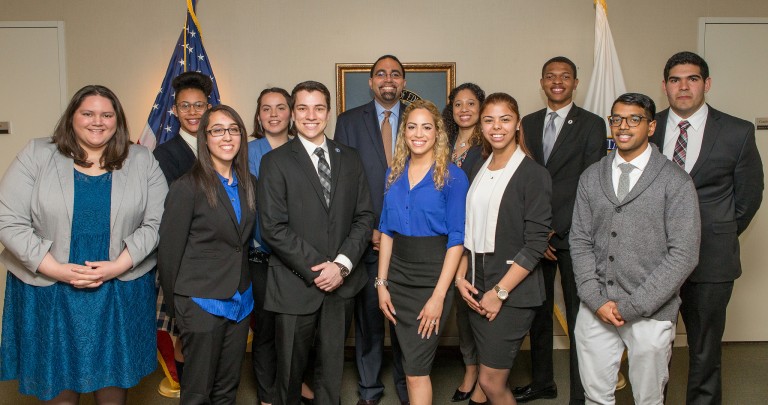

“If you feel like you belong, you can achieve anything.”
This was the overarching sentiment expressed by many students during the latest Student Voices session, which focused on college completion at Minority Serving Institutions.
Both Secretary John King and Under Secretary Ted Mitchell were on hand to listen and engage students from a variety of socio-economic and racial backgrounds around the idea of belonging.
Many students present expressed a concern about the general lack of support from school counselors and said this made them feel as though they didn’t belong at college.
Other students said it was one unique relationship – whether with a teacher or professor – that enabled them to attend and complete college because this individual took the time to listen, work alongside them and help them navigate the system.
One Native student said she felt misunderstood and taken advantage of because her high school counselor took it for granted that she would be able to fill out the online FAFSA application without realizing that she lacked access to resources such as wi-fi.
As a DACA student myself at this session, I recalled how college personnel sent me to one office after another with disjointed pieces of advice when I was attempting to find resources to pay my tuition.
Hearing these concerns about the need to improve school and college advising, Secretary King emphasized how the Department of Education is trying to share best practices with universities to better support undocumented students. He also said that ED is attempting to increase funding to prepare more school counselors.
Evan Sanchez, another undergraduate at the session, explained that he thinks college personnel should alter their advising schedules to better meet the needs of working or non-traditional students who are juggling multiple responsibilities.
Joanna DeJesus, a CUNY Macaulay Honors College student, recommended more purposeful communication across departments so that students do not receive conflicting advice.
Finally, the students agreed on the importance of universities to exert greater efforts in aiding students beyond college, such as assisting with job placements and providing financial literacy guidance.
The session itself, which was only supposed to last 30 minutes, continued for more than an hour. The fact that Secretary King stayed to listen to everyone’s stories demonstrated how much he valued our perspectives and diverse experiences. It is not everyday that there are Native, Asian-origin undocumented, Black, and Latina and Latino students engaging in the same conversation.
I think it’s important to recognize that educational policy decisions cannot be made without student input since it directly affects us. Secretary King ensured that our voices were not only heard, but that we felt like belonged in such a space to be able to share our personal journeys and recommendations.
Syeda Raza is an E3! Ambassador at the White House Initiative on Asian Americans and Pacific Islanders.

